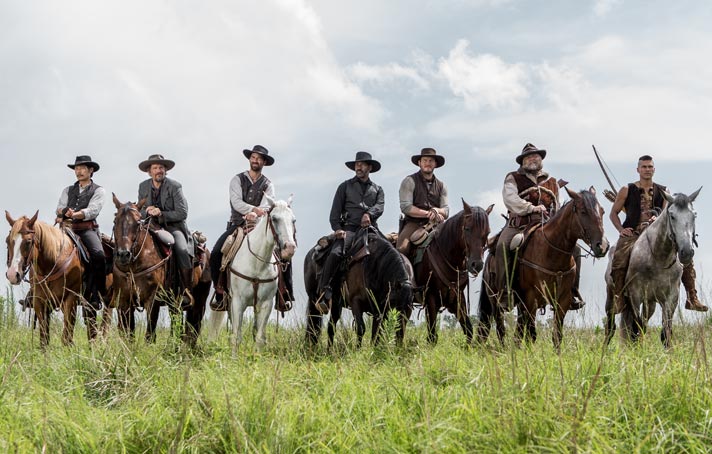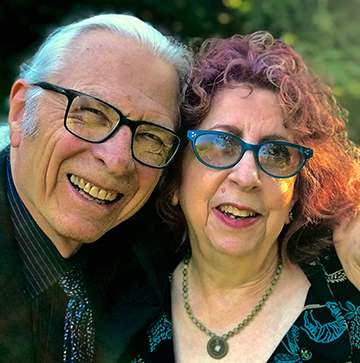The Unfettered Critic – November 2016
One of our edicts is: “Don’t remake Hollywood’s great classics; remake the movies that had the potential to be great but were screwed up in some way.” Cases in point: remakes of The Karate Kid, King Kong (twice), Psycho, and The Pink Panther each did a disservice to the originals. So it was with great trepidation that we wandered into Tinseltown to watch the latest rendition of The Magnificent Seven. To our surprise, it works—and works wonderfully.
This is doubly odd, because the first American version bearing this title was a remake as well, of a great Japanese film. In 1954, Akira Kurosawa co-wrote and directed his masterpiece, The Seven Samurai. It’s the story of a motley group of warriors, led by actor Toshiro Mifune, who honor a village’s request for protection from bandits. The experienced fighters teach the townspeople to defend themselves. Of course, there is a huge battle, with a bittersweet victory at the end.
Students of film universally rank The Seven Samurai as one of the greatest films of all time. So when director John Sturges (The Great Escape) used it as a blueprint for his 1960 remake, he was taking a magnificent chance. Armed with a fast-moving screenplay, he brilliantly chose Yul Brynner for the Mifune role, and rounded out his cast with the likes of Steve McQueen, Charles Bronson, Robert Vaughn, and James Colburn. Adapting their character portrayals from those in Kurosawa’s classic, the Hollywood group created a classic that stands on its own. Happily, nothing at all was lost in translation.
So how can a remake of a remake rate our recommendation? In the beginning there is the western. Director Antoine Fuqua (Training Day) reportedly loves westerns, and it shows. The story is set in the American southwest (he shot portions in the New Mexico desert) in the year 1879. Throughout the first third of the film, the scenery brings to mind the stark majesty of settings for The Searchers, The Wild Bunch, and Duel in the Sun. The beautiful vistas lull us into the mood of those classics. Then there’s the casting. Denzel Washington flawlessly fills the position previously held by Mifune and Brynner. As the leader who gathers up his small army of misfit warriors, Washington demonstrates why he has become not only one of our biggest stars, but one of our greatest actors. (There’s a difference, you know.) His presence dominates the screen, so when his disheveled posse willingly follows him into a certain-death situation, we willingly tag along.
The 1960 film hinted at its samurai origins with the blade-wielding agility of the character played by James Colburn. This new version expands on that homage with a fascinating character played by South Korean actor Lee Byung-hun, a one-man samurai army, skilled in blades, bullets, and physical combat. Another character from the two previous versions, played in l960 by Robert Vaughn, is a drunk who appears to be a coward. Vaughn’s character-flaw wasn’t fully explained, but this time, with Ethan Hawke wearing the role, an evident severe case of PTSD (from serving in the Civil War) explains a great deal, and brings a relevance to the character and the movie that was missing before.
The Magnificent Seven isn’t the first movie inspired by Akira Kurosawa. Writer and director George Lucas based part of his story for the original Star Wars film on Kurosawa’s great samurai film The Hidden Fortress. And Sergio Leone helped make Clint Eastwood a superstar when he adapted Kurosawa’s Yojimbo into A Fistful of Dollars.
Perhaps we should change our edict to: “unless they’re inspired by Kurosawa.”
Featured image: Sam Emerson/MGM and Columbia Pictures.

 Paula and Terry identify as writers, with an ever-increasing number of published works to support the supposition. They live a primarily pastoral life in the enchanted town of Jacksonville.
Paula and Terry identify as writers, with an ever-increasing number of published works to support the supposition. They live a primarily pastoral life in the enchanted town of Jacksonville.